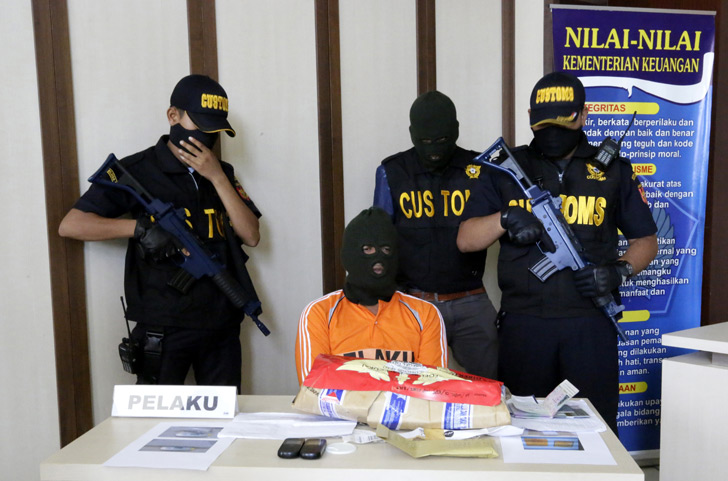Following a UN conference on drugs last month, countries in the region are being accused of sticking with ineffective and harmful anti-drug policies
Last month in New York, governments and civil society attended the UN’s General Assembly Special Session (UNGASS) to discuss the global drug problem. There were high hopes, particularly as Latin American countries most affected by the so-called “War on Drugs” had strongly pushed for the session, that there could be a revolution in drug policy. What resulted was, at best, a small evolution in thinking.

It may lead to more flexibility from the UN on drug treaties, increased acceptance that harsh drug laws are not working and a change in the language used around drug users. But for Southeast Asian governments, and in particular Asean as a whole, it seems a revolution is still some way off.
“The UNGASS event itself clearly marked a shift in thinking and a widening gap between reform-minded countries and those that want to retain the status quo,” said Tom Blickman, programme coordinator for policy group Transnational Institute. “Unfortunately, most Southeast Asian countries and China belong to latter category and Asean is still committed to the unrealistic goal of a drug-free society.”
The background to this goal is the region’s long and troubled history with narcotics. As a January 2015 article on The Interpreter, the website for the Lowy Institute for International Policy, explained: “Drug gangs and their huge profits threaten internal security and development. Drug-related diseases such as HIV devastate populations and drug-fuelled violence terrorises communities across Southeast Asia.”
Many countries in the Asean bloc individually recognise that the drug-free goal is not a realistic objective. However, “they stick to it as rather a symbolic way to steer drug-control efforts,” said Olivier Lermet, regional advisor on HIV at the United Nations Office on Drugs and Crime’s Southeast Asia and the Pacific office.
“The fact that it still represents the official regional doctrine is problematic from a public health and human rights point of view,” Lermet added. “We advise countries and organisations… that a comprehensive approach to drug use that includes prevention, treatment and access to health services and medicines works best.”
Singapore’s minister for home affairs and minister for law, Kasiviswanathan Shanmugam, stands firm though. His message to the UN summit was that harm reduction programmes were tantamount to the legalisation of drugs and could not be tolerated.
“When you go down the route of harm reduction, I don’t think we should be under any illusion – drugs harm the abuser, his family, and the community. Period,” Shanmugam said.
But according to Gloria Lai, senior policy officer for the International Drug Policy Consortium (IDPC), harm reduction is about minimising the risks relating to drug use, including overdose, illnesses and infections. “It is a pragmatic acknowledgment that there will always be people who use drugs and that the ultimate objective of drug control policies should be to save lives,” she said.
Countries in the region seem “unable to confront the realities of steadily growing drug markets and to contemplate a rational approach to drugs that would cause less harm to individuals and societies”, Lai added.
The IDPC notes that, in the region, “the prevalence of harsh, disproportionate penalties for drugs offences… are accompanied by severe and blatant violations of human rights justified through national legal systems”. The strongest legal sanction used is the death penalty. Currently, Malaysia, Singapore and Vietnam regularly execute drug offenders, and Indonesia has recently resumed executions.
At the UN conference, the Philippines was the only country in the region that actively opposed the death penalty, although countries including Cambodia, Myanmar and Timor-Leste also do not impose the death penalty for drugs offences. Indonesia delivered a statement in defence of retaining it, on behalf of a coalition of countries including China, Singapore and Malaysia, among others.
Despite being proud of her country’s stance on the death penalty, Ma. Inez Feria, founding director of the Philippine NGO NoBox Transitions, was worried that this may change if current presidential election frontrunner Rodrigo Duterte reaches the top spot.
“[Duterte] is a man who has been linked to extrajudicial killings particularly of people associated with drugs, who makes no qualms about speaking of killing to address drugs and crime, among many other seriously worrisome things,” Inez Feria said.
For now, Indonesia is the country fixed most firmly in the spotlight for its use of the death penalty. Last year, the country executed 14 death row prisoners. During the UN summit, Indonesian lawyer Ricky Gunawan, director of the Community Legal Aid Institute, gave an impassioned speech decrying his country’s use of the sanction, drawn from his meetings with two of those executed.
Speaking to Southeast Asia Globe last week, Gunawan was clear that he believes Indonesia’s current drug policies just do not work – calling the Indonesian government “blinded by a desire to continue to use punitive measures” – and recommending the upscaling of existing harm-reduction programmes as the way forward.
“The [Indonesian government’s] intended objective is to restrict drug use and eradicate drug trafficking,” he said. “But what is happening now is completely the opposite. Drug use is increasing, drug trafficking is increasing.”

